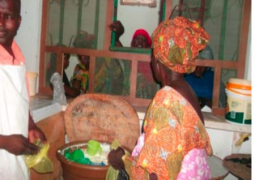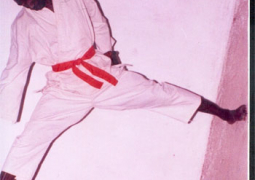Two
eyewitnesses have refuted the police version of the accident in Kitty village,
on Saturday, 4 February 2017, which said it was due to an over-speeding taxi
driver trying to avoid a truck that it was about to collide with and, as a
result, ran into a crowd of jubilant fans.
The
eyewitnesses, Abdoukadari Masalie, campaign manager of the opposition
coalition, and Abubacarr M. Drammeh, youth mobiliser of the coalition in Kitty
village, said the police version does not represent what happened.
They
said the incident happened between 10.30p.m. to 11p.m. when the coalition
militants were coming from the home of the village chairwoman of the coalition,
Fatou Bojang, going back to the home of the coalition chairman, Abdoulie
Janneh.
According
to their version, it was on the way from the chairwoman’s home to the
chairman’s home that a Mercedes Benz 190 ran into the crowd, causing injury to
34 people who were immediately rushed to the hospitals.
The
duo said as the village coalition members, they were jubilating about the victory
of President Adama Barrow as they walked towards the home of their chairman,
when the Benz “with a high speed deliberately ran into the crowd and hit
people: ten people have their legs broken and for three of them, both legs were
broken’.
Contrary
to the police version that there was a truck coming towards the Benz, which the
driver was trying to avoid and accidentally ran into the crowd, the
eyewitnesses said there was no other vehicle passing at the time of the
accident; it was only the Benz.
And
for more than 10 minutes after the accident, they added, there was no vehicle
that went past; they said the first vehicle to arrive at the scene was from the
fire and rescue services, and that the police came later.
As
opposed to reports that the crowd was coming from a football pitch and
celebrating a football victory, the eyewitnesses said there was no football
victory celebration taking place; it was a coalition victory celebration.
Masalie
and Drammeh said the police did not interview any eyewitness on the ground,
when they came.



